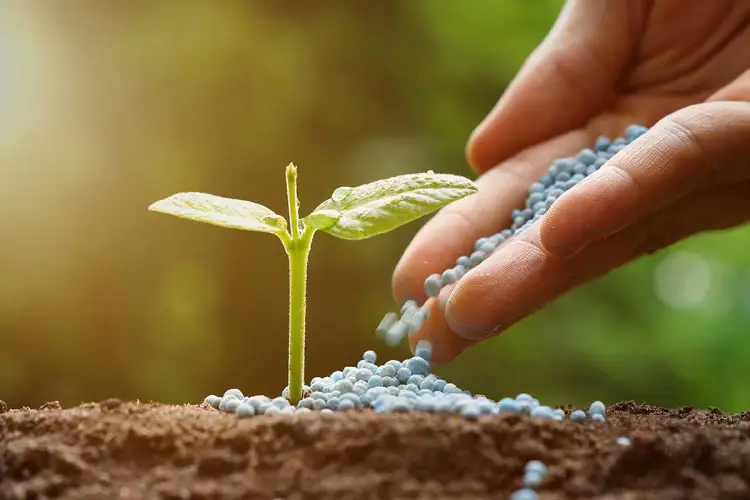
24 Dec Fertilizer
Fertilizer refers to any substance or mixture of substances that is applied to soil or plants to provide essential nutrients for plant growth and development. Fertilizers are used in agriculture, horticulture, and gardening to enhance soil fertility and increase crop yield.
Here are some key points about fertilizers:
Nutrient Supply: Fertilizers supply essential nutrients required by plants for their growth and development. The three primary nutrients needed in relatively large quantities are nitrogen (N), phosphorus (P), and potassium (K), commonly referred to as NPK. Fertilizers may also contain secondary nutrients like calcium, magnesium, and sulfur, as well as trace elements such as iron, zinc, and copper.
Types of Fertilizers: Fertilizers can be classified into two main categories:
Organic Fertilizers: Derived from natural sources, such as animal manure, compost, and plant residues. Organic fertilizers release nutrients slowly as they break down, improving soil structure and fertility over time.
Inorganic Fertilizers: Also known as synthetic or chemical fertilizers, they are manufactured through industrial processes. Inorganic fertilizers provide nutrients in readily available forms and can be tailored to specific nutrient ratios.
Fertilizer Forms: Fertilizers can be found in various forms, including solid granules, powders, liquids, and controlled-release formulations. The choice of fertilizer form depends on factors such as the crop type, application method, and desired nutrient release rate.
Fertilizer Application: Fertilizers can be applied through different methods:
Broadcasting: Spreading fertilizer uniformly across the soil surface.
Banding: Placement of fertilizer in a concentrated band near the plant roots.
Foliar Application: Spraying fertilizer solution on the leaves for direct absorption.
Fertigation: Adding fertilizers to irrigation water for application through irrigation systems.
Environmental Considerations: The improper use or excessive application of fertilizers can have environmental consequences. Runoff from agricultural fields or gardens can contribute to water pollution, as excess nutrients may enter water bodies and cause eutrophication. Proper fertilizer management practices, such as soil testing, application timing, and nutrient optimization, help minimize environmental impacts.
Sustainable Fertilizer Practices: Sustainable agriculture promotes the judicious and efficient use of fertilizers to minimize environmental impact. This includes practices like precision agriculture, nutrient management plans, use of organic fertilizers, and adopting integrated nutrient management strategies.
Fertilizers play a crucial role in modern agriculture by replenishing essential nutrients in the soil and promoting healthy plant growth. They contribute to increased crop yields and food production, helping meet the demands of a growing global population. However, the responsible and sustainable use of fertilizers is essential to minimize environmental impacts

